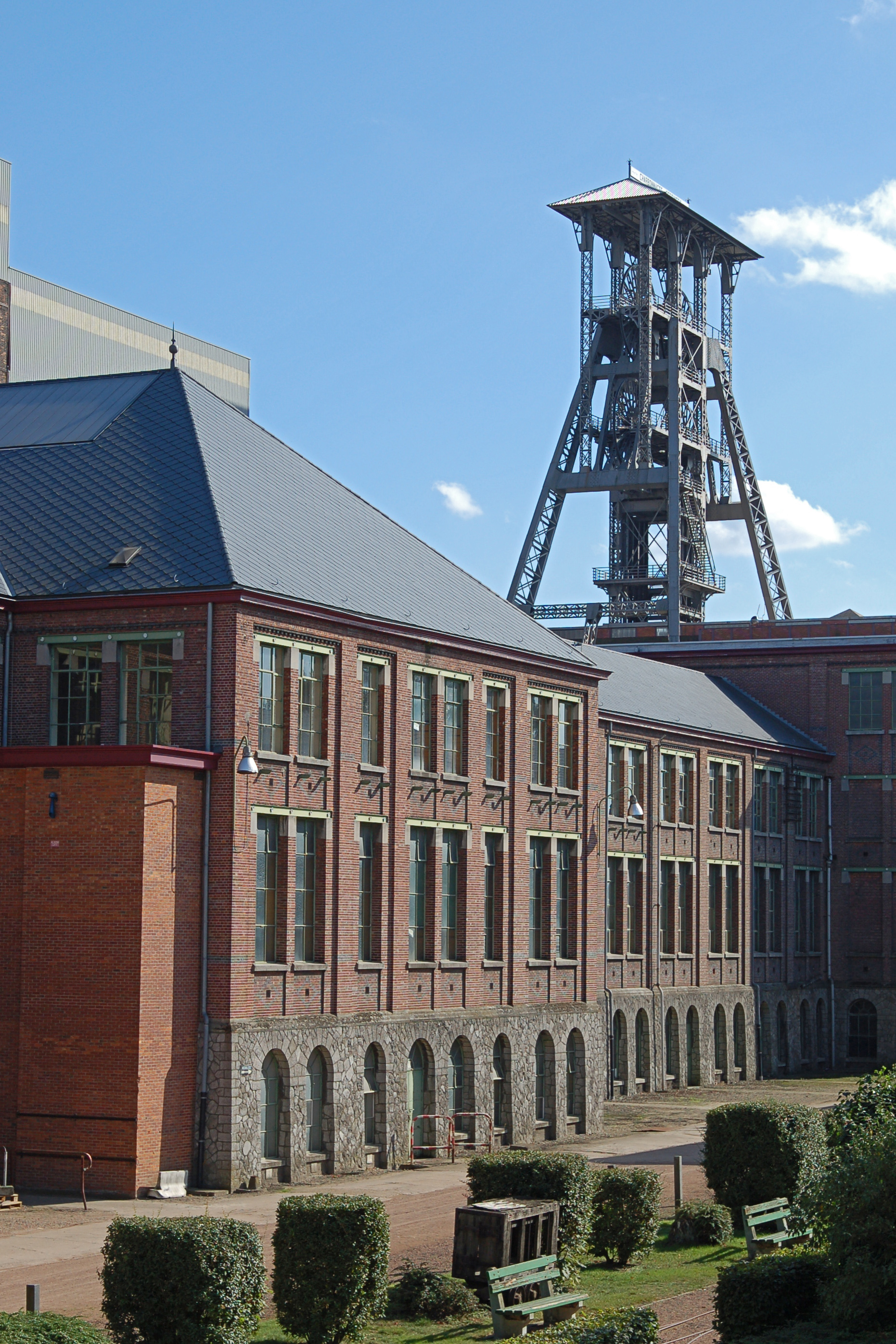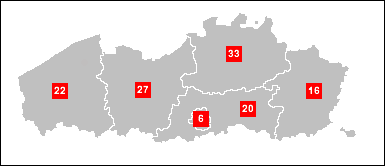|
Zuhal Demir
Zuhal Demir (born 2 March 1980) is a Belgian lawyer and politician affiliated with the N-VA. Demir was elected as a member of the Belgian Chamber of Representatives in 2010 and served there until 2017. She served as Secretary of State for Poverty Reduction in the Belgian Government (2017–2018). She then served as the Flemish minister for Justice and Enforcement, Environment, Energy and Tourism in the Jambon Government. In September 2024 she was sworn in as Flemish minister for Education in the Diependaele Government. Biography Demir was born in Genk. She is the daughter of Alevi Kurdish parents from Turkey and lives in Antwerp. Her father moved to Belgium to work as a miner in the 1970s. She studied law at the KU Leuven in 1998–2003, and went on in 2003–2004 with a Master in Social Law at the VUB (Vrije Universiteit Brussel). Since 2004, she has worked as a lawyer for an international law firm focusing on employment law. Demir held dual Belgian and Turkish citizenship bu ... [...More Info...] [...Related Items...] OR: [Wikipedia] [Google] [Baidu] |
Jan Jambon
Johan "Jan" Martin Jozef Jambon (born 26 April 1960) is a Belgian businessman and politician of the New Flemish Alliance (N-VA) who has been serving as a Deputy Prime Minister and as the Minister of Finance, Pensions, National Lottery and Federal Culture Institutions in the De Wever Government since february 2025. Before that, he served as Minister-President of Flanders from 2019 to 2024. He replaced Kris Peeters as a member of the Belgian Chamber of Representatives in 2007. The N-VA was, at that time, partnered with the Christian-Democratic and Flemish party. In June 2010 and May 2014, he was re-elected on an N-VA list. He became mayor of Brasschaat in 2013 after his party won the local elections in 2012. In November 2014, he was replaced as acting mayor by Koen Verberck (also N-VA), after joining the new Federal Government. In October 2014, he became Deputy Prime Minister and Minister of the Interior and Security, charged with the direction of public buildings, in the Mic ... [...More Info...] [...Related Items...] OR: [Wikipedia] [Google] [Baidu] |
Katholieke Universiteit Leuven
KU Leuven (Katholieke Universiteit Leuven) is a Catholic research university in the city of Leuven, Belgium. Founded in 1425, it is the oldest university in Belgium and the oldest university in the Low Countries. In addition to its main campus in Leuven, it has satellite campuses in Kortrijk, Antwerp, Ghent, Bruges, Ostend, Geel, Diepenbeek, Genk, Aalst, Sint-Katelijne-Waver, and in Belgium's capital Brussels. KU Leuven is the largest university in Belgium and the Low Countries and the largest Dutch-language university in the world. In 2021–22, more than 65,000 students were enrolled, with 21% being international students. Its primary language of instruction is Dutch, although several programs are taught in English, particularly graduate and postgraduate degrees. KU Leuven previously only accepted baptized Catholics, but is now open to students from different faiths or life-stances. While nowadays only the acronymic name KU Leuven is used, the university's legal ... [...More Info...] [...Related Items...] OR: [Wikipedia] [Google] [Baidu] |
Maasmechelen
Maasmechelen (; ) is a municipality located on the Meuse in the Belgian province of Limburg. It comprises the former municipalities of Mechelen-aan-de-Maas, Vucht, Leut, Meeswijk, Uikhoven, Eisden, Opgrimbie, Boorsem, and Kotem. As a result of both Maasmechelen's location near the border and its coalmining history, quite a few of its current inhabitants are of Dutch, German, Polish or Mediterranean (mainly Italian) origin. History Prehistoric and Roman times The plateau of Campine was built up during the ice age with deposits of sand and other material that the Meuse river had eroded in the upstream Ardennes region. The higher elevation and the proximity of fertile river clay made this location an attractive one for the prehistoric tribes who established themselves here in the 2nd millennium BC and for the Celtic peoples who moved in the area in the 1st millennium BC. In Roman times, this region was at the border between the provinces of Gallia Belgica and Germania Infe ... [...More Info...] [...Related Items...] OR: [Wikipedia] [Google] [Baidu] |
Beringen, Belgium
Beringen (; , ; ) is a Municipalities of Belgium, municipality and City status in Belgium, city located in the Belgium, Belgian Provinces of Belgium, province of Limburg (Belgium), Limburg. The Beringen Municipalities of Belgium, municipality includes the town of Beringen proper and the old communes of Beverlo, Koersel, and Paal, Belgium, Paal. History Origins Beringen was already inhabited in Celtic times, as proven by the 1995 archeological finds of gold coins and artifacts on its territory. These date from around 90 BC and are the most northerly late-Iron-Age gold objects found in Europe. Other finds, including of Roman coins, indicate a very early establishment.Beringen historisch The first mention of Beringen dates to 1120 when it was known as 'Beringe', a word derived from the Germanic language, Germanic ... [...More Info...] [...Related Items...] OR: [Wikipedia] [Google] [Baidu] |
Kurds
Kurds (), or the Kurdish people, are an Iranian peoples, Iranic ethnic group from West Asia. They are indigenous to Kurdistan, which is a geographic region spanning southeastern Turkey, northwestern Iran, northern Iraq, and northeastern Syria. Consisting of 30–45 million people, the global Kurdish population is largely concentrated in Kurdistan, but significant communities of the Kurdish diaspora exist in parts of West Asia beyond Kurdistan and in parts of Europe, most notably including: Turkey's Central Anatolian Kurds, as well as Kurds in Istanbul, Istanbul Kurds; Iran's Khorasani Kurds; the Caucasian Kurds, primarily in Kurds in Azerbaijan, Azerbaijan and Kurds in Armenia, Armenia; and the Kurdish populations in various European countries, namely Kurds in Germany, Germany, Kurds in France, France, Kurds in Sweden, Sweden, and the Kurds in the Netherlands, Netherlands. The Kurdish language, Kurdish languages and the Zaza–Gorani languages, both of which belong to the Wes ... [...More Info...] [...Related Items...] OR: [Wikipedia] [Google] [Baidu] |
Kurdistan Workers' Party
The Kurdistan Workers' Party, or the PKK, isDespite the PKK's 12th Congress announcing plans for total organisational dissolution, the PKK has not yet been dissolved de facto or de jure. a Kurds, Kurdish militant political organization and armed List of guerrilla movements, guerrilla group primarily based in the mountainous Kurdish-majority regions of Turkish Kurdistan, southeastern Turkey, Iraqi Kurdistan, northern Iraq and north-eastern Syria. It was founded in Ziyaret, Lice on 27 November 1978 and was involved in asymmetric warfare in the Kurdish–Turkish conflict (1978–present), Kurdish–Turkish conflict (with several ceasefires between 1993 Kurdistan Workers' Party ceasefire, 1993 and 2013–2015 PKK–Turkey peace process, 2013–2015). Although the PKK initially sought an independent Kurdish state, in the 1990s its official platform changed to seeking autonomy and increased Human rights of Kurdish people in Turkey, political and cultural rights for Kurds within Turkey. ... [...More Info...] [...Related Items...] OR: [Wikipedia] [Google] [Baidu] |
Flemish People
Flemish people or Flemings ( ) are a Germanic peoples, Germanic ethnic group native to Flanders, Belgium, who speak Flemish Dutch. Flemish people make up the majority of Belgians, at about 60%. ''Flemish'' was historically a geographical term, as all inhabitants of the medieval County of Flanders in modern-day Belgium, France and the Netherlands were referred to as "Flemings" irrespective of their ethnicity or language. The contemporary region of Flanders comprises a part of this historical county, as well as parts of the medieval Duchy of Brabant and the medieval County of Loon, where the modern national identity and Flemish culture, culture gradually formed. History The sense of "Flemish" identity increased significantly after the Belgian Revolution. Prior to this, the term "" in the Dutch language was in first place used for the inhabitants of the former County of Flanders. Flemish, however, had been used since the 14th century to refer to the language and dialects of both ... [...More Info...] [...Related Items...] OR: [Wikipedia] [Google] [Baidu] |
Dutch Language
Dutch ( ) is a West Germanic languages, West Germanic language of the Indo-European language family, spoken by about 25 million people as a first language and 5 million as a second language and is the List of languages by total number of speakers, third most spoken Germanic language. In Europe, Dutch is the native language of most of the population of the Netherlands and Flanders (which includes 60% of the population of Belgium). "1% of the EU population claims to speak Dutch well enough in order to have a conversation." (page 153). Dutch was one of the official languages of South Africa until 1925, when it was replaced by Afrikaans, a separate but partially Mutual intelligibility, mutually intelligible daughter language of Dutch. Afrikaans, depending on the definition used, may be considered a sister language, spoken, to some degree, by at least 16 million people, mainly in South Africa and Namibia, and evolving from Cape Dutch dialects. In South America, Dutch is the native l ... [...More Info...] [...Related Items...] OR: [Wikipedia] [Google] [Baidu] |
Flemish Parliament
The Flemish Parliament (Dutch language, Dutch: , formerly called Flemish Council or ''Vlaamse Raad'') constitutes the legislature, legislative power in Flanders for matters which fall within the competence of Flanders, both as a geographic region and as a cultural community of Belgium (unlike the French Community of Belgium, French Community and Wallonia, which each have separate legislatures: the Parliament of the French Community and the Parliament of Wallonia). The Flemish Parliament approves Decree (Belgium), decrees, which are Flemish laws, applicable to all persons in the Flemish Region, and to Flemish institutions in Brussels; it appoints and supervises the Flemish Government; and it approves the Flemish budget. The Flemish Parliament meets in the Flemish Parliament building in central City of Brussels, Brussels, and its members and staff are housed in the House of the Flemish Representatives. History From 1830 until 1970 Belgium was a unitary state with a single govern ... [...More Info...] [...Related Items...] OR: [Wikipedia] [Google] [Baidu] |
2019 Belgian Regional Elections
The 2019 Belgian regional elections took place on Sunday 26 May, the same day as the 2019 European Parliament election in Belgium, 2019 European Parliament election as well as the 2019 Belgian federal election, Belgian federal election. In the regional elections, new representatives were chosen for the Flemish Parliament, Walloon Parliament, Brussels Parliament and the Parliament of the German-speaking Community. The Parliament of the French Community was composed of all elected members of the Walloon Parliament (except German-speaking members) and 19 of the French-speaking members of the Brussels Parliament. The elections followed the 2014 Belgian regional elections, 2014 elections and were shortly after the 2018 Belgian local elections, 2018 local elections, which indicated voters' tendencies after an unusually long period of time without any elections in Belgium. Electoral system The regional parliaments have limited power over their own election; federal law largely regula ... [...More Info...] [...Related Items...] OR: [Wikipedia] [Google] [Baidu] |
De Morgen
''De Morgen'' (; ''The Morning'') is a Flemish newspaper with a circulation of 53,860. The paper is published in Antwerp, Belgium. History and profile ''De Morgen'' originates from a merger in 1978 of two socialist newspapers ' (meaning "Onwards" in English) and ' (meaning "People's Newspaper" in English). The ''Vooruit'' was founded in Ghent by Edward Anseele and appeared the first time on 31 August 1884, just before the foundation of the Belgian Labour Party (Dutch: Belgische Werklieden Partij) in 1885. ''De Morgen'' was modelled on French daily ''Liberation''. The paper is published by De Persgroep which also publishes ''Het Laatste Nieuws''. ''De Morgen'' presents itself as an independent and progressive newspaper and a more dynamic alternative to its two competitors in the Flemish market, '' De Standaard'' and '' De Tijd''. On the other hand, the paper is described as a leftist and socialistic publication. According to the former editor-in-chief An editor-in-chief (EI ... [...More Info...] [...Related Items...] OR: [Wikipedia] [Google] [Baidu] |





